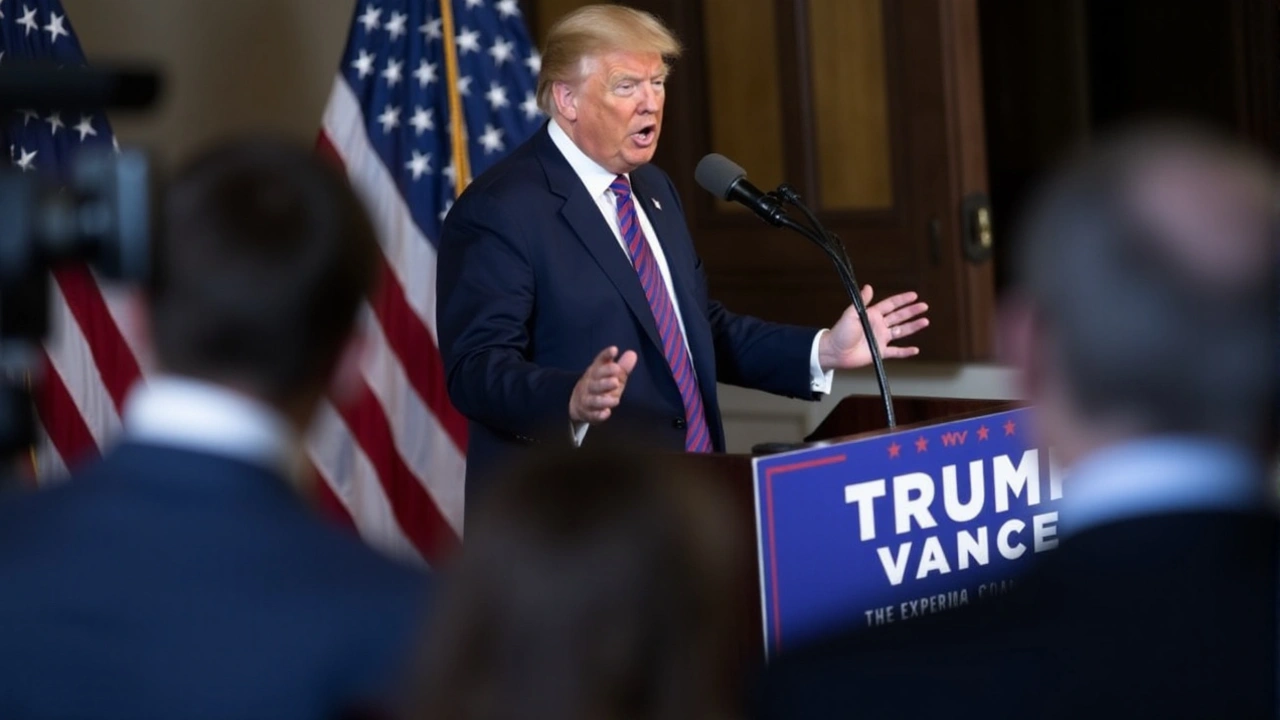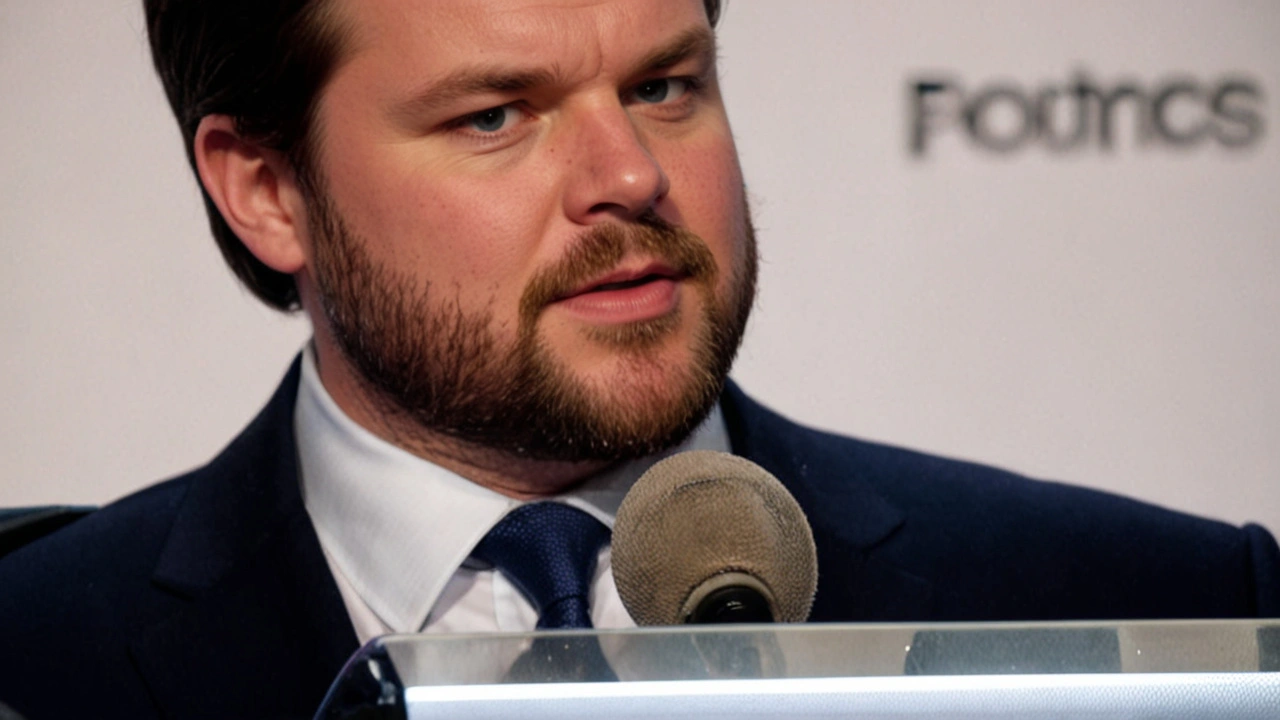Donald Trump, the U.S. President-elect, has ignited a storm of international controversy with his latest ambitious declarations. During a press conference held at his Mar-a-Lago estate, Trump openly presented his aspirations of expanding the geographic footprint of the United States. The focus of these expansionist goals prominently included the acquisition of strategically significant locations such as Greenland and the Panama Canal. His statements have been met with criticism from global leaders, igniting debates concerning international relations and sovereignty.
When questioned about his expansionist ideas, Trump did not shy away from suggesting the possibility of using military might to fulfill his ambitions. He emphasized the importance of these territories for national security and the economic benefits they could yield for America. The former businessman underscored that the shift in global geopolitics from his initial presidency necessitated this change in approach—from an isolationist stance to one that is strikingly interventionist.
In addition to Greenland and the Panama Canal, Trump also expressed the possibility of incorporating Canada as the 51st state of the United States. While he assured that military force would not be involved in Canada’s case, the intention to apply economic pressure instead did not sit well with critics. His aspirations were justified by the need to keep up with the strategic movements of global powers such as Russia and China, which, according to Trump, are increasingly positioning themselves as threats to American interests.
Following these revelations, Danish Prime Minister Mette Frederiksen voiced her outright rejection of any idea of selling Greenland. With a strong emphasis, she declared that Greenland’s future stands in the hands of its own people, the Greenlanders. The vehement refusal by Frederiksen highlighted the touchy nature of sovereign rights and international diplomacy, bringing more scrutiny onto Trump’s declarations.
Trump's expansionist rhetoric has drawn stark comparisons to the Monroe Doctrine, a historic U.S. foreign policy aimed at curtailing European colonialism in the Americas. His hints at reviving aspects of this doctrine have been met with widespread criticism. Critics argue that adopting such a policy would likely prove detrimental to the broader scope of U.S. foreign policy aims and might disrupt the established global order.
Responses from international leaders have largely been skeptical, framing Trump's geopolitical ambitions as anachronistic and impractical for contemporary international relations. The consensus suggests that his approach harkens back to a bygone era of power dynamics, where direct control over territories was sought over cooperative international dialogue.
Historically, the notion of acquiring Greenland is not new; it has cropped up in various forms within U.S. political dialogue throughout the decades. However, never before has it been presented with the same vigor and commitment as Trump has recently displayed. The bid for the Panama Canal also brings back memories of critical historical developments in U.S. foreign policy, keeping analysts and diplomats around the world on their toes.
The reactions of skepticism and opposition reflect the complexities involved in current geopolitics. Technological advancements, economic interdependencies, and complex alliances have painted international relations in shades far more intricate than those of any past eras. Trump's apparent nostalgia for former models of power and territory acquisition serves to polarize opinions further as global leaders deliberate the implications of his statements.
The trajectory of U.S. foreign relations under Trump's potential upcoming term remains to be seen. However, one can expect continued tension, discussions, and diplomatic maneuvers as the world watches how Trump's plans unfold. This circumstance places further weight on the responsibility held by the international community in maintaining a stable and cooperative global environment.
Whether or not Trump's audacious ambitions materialize, they pinpoint a significant moment in global politics, where the old and new methods of international engagement confront one another. It raises questions about the evolving role of countries in fostering peace and cooperation in a rapidly changing world order. While the rhetoric could purely serve as strategic bluster, it nevertheless sets a stage conducive to reflection and reevaluation by all nations involved.









shefali pace
January 8, 2025 AT 17:14Wow, the sheer audacity of these ideas really pulls at the heartstrings of anyone who dreams of a more united world. While the practicalities are a nightmare, the vision of a bold, collaborative future lights up the conversation like fireworks. It's like watching a geopolitical drama where every nation gets a chance to step onto the stage and be heard. If only we could channel that energy into genuine partnership rather than conquest, imagine the possibilities!
sachin p
January 13, 2025 AT 08:20Reflecting on the historical attempts at North Atlantic expansion, it's intriguing how cultural narratives shape policy. One wonders whether the same motives inform today's rhetoric, even if the tone seems softer. Still, the undercurrents stay remarkably similar.
sarthak malik
January 17, 2025 AT 23:27Just to add a bit of context: the U.S. has floated the idea of buying Greenland a few times since the Cold War, most notably in the 1980s.
Economically, Greenland's resources are valuable, but the political cost would be huge.
Also, the Panama Canal is already under Panamanian control with a long-standing treaty that’s unlikely to be renegotiated.
Nasrin Saning
January 22, 2025 AT 14:34We should think about the people living there not just the map
History shows that forced acquisition rarely ends well for the locals
gaganpreet singh
January 27, 2025 AT 05:40It is beyond disheartening to witness a resurgence of imperialist fantasy that belongs in a history textbook rather than the modern political arena. The notion that the United States could simply annex sovereign territories by virtue of its own self‑proclaimed destiny smacks of a moral vacuum that has been quietly festering beneath the veneer of democracy. When leaders float talk of purchasing Greenland or seizing the Panama Canal, they are not merely proposing strategic maneuvers; they are evoking a colonial mindset that dismisses the agency of entire peoples. Such rhetoric is a thinly veiled assertion that size and firepower grant an automatic right to rewrite international borders, an idea that the post‑World War‑II order explicitly rejected. Moreover, the suggestion of using military might to achieve these goals reopens the darkest chapters of foreign intervention, where wars were waged not for defense but for expansion. The global community, having endured the devastations of such aggression, is rightfully skeptical and alarmed. The diplomatic fallout from these statements will further isolate any administration daring to entertain them, because allies and opponents alike recognize the danger of normalizing territorial acquisitiveness. Even if the statements are merely rhetorical, they plant seeds of doubt in the minds of partners who rely on a stable, rules‑based system. The economic arguments presented-whether about resource extraction in Greenland or control of a vital maritime chokepoint-fail to account for the immense costs of international backlash, sanctions, and potential armed resistance. In the age of interconnected economies, no nation can afford to gamble with such high‑stakes gambits without endangering its own prosperity. Finally, we must ask ourselves: what does this signal to emerging powers observing the United States? It could embolden them to pursue similarly aggressive strategies, destabilizing the fragile balance that has been painstakingly built over decades. In short, the revival of a Monroe‑like doctrine under the guise of modern security is not only anachronistic but also perilously irresponsible.
Urmil Pathak
January 31, 2025 AT 20:47It sounds crazy.
Neha Godambe
February 5, 2025 AT 11:54While I appreciate the passion behind these proposals, it is essential to address them with a measured and respectful tone. The sovereign rights of nations and territories must be upheld, and any dialogue should prioritize diplomatic channels over coercive suggestions. Let us engage constructively, acknowledging the legitimate concerns while maintaining international law.
rupesh kantaria
February 10, 2025 AT 03:00In the grand tapestry of geopolitics, it is perdicible that the pursuit of territorial aggrandizement, though seemingly anachronic, may stem from a deep‑seated articulation of power praxis. Yet, as one might contemtpt, such ambitions in the 21st century risk precipitating a mired entanglement of diplomtic frictions that could eviscerate the delicate equilibrium upon which the modern world rests. Indeed, the sediment of history teaches that charachter of nations is tempered by humility and respect for suverign boundaries.
Nathan Tuon
February 14, 2025 AT 18:07Considering all angles, it's clear that bold visions need realistic pathways. Energy and focus should go toward strengthening alliances rather than chasing distant lands.
shivam Agarwal
February 19, 2025 AT 09:14There are many perspectives at play here, and it's vital to listen to them all. While some see strategic gain, others perceive a threat to autonomy. It helps to keep the dialogue open, offering space for both caution and optimism. In the end, cooperation can only grow when we respect each other's histories and aspirations.